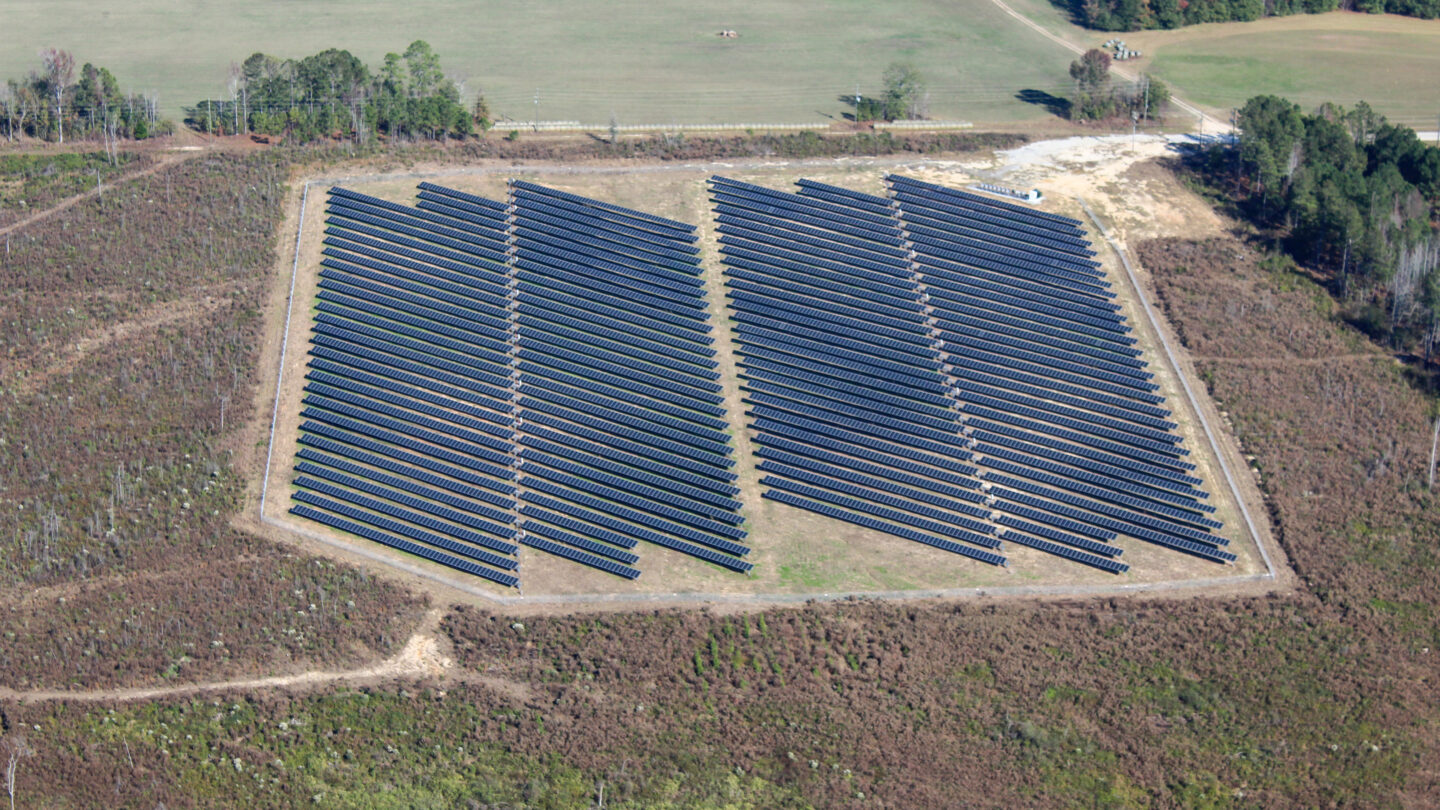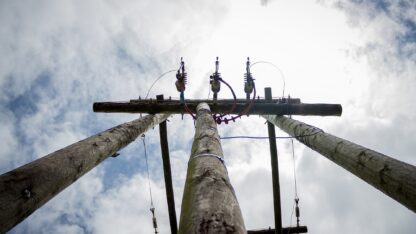Georgia Power seeks to add more gas power to keep up with business demand

This coverage is made possible through a partnership with WABE and Grist, a nonprofit, independent media organization dedicated to telling stories of climate solutions and a just future.
Georgia Power is seeking to make more electricity, mostly from nonrenewable fossil fuels. The utility company told state regulators in a filing Friday it needs the added power to meet the demands of new businesses.
“Many businesses coming to the state are bringing large electrical demands at both a record scale and velocity,” said Georgia Power CEO Kim Greene in a statement. “This [Integrated Resource Plan] Update outlines how Georgia Power can best continue supporting that historic growth while continuing to provide our customers with the clean, safe, reliable, and affordable energy they expect and deserve.”
The utility needs approval from the Georgia Public Service Commission (PSC) to change its power generation plans.
Environmental advocates criticized the move, arguing Georgia Power could meet the added demand with renewable resources that do not worsen climate change.
The utility plans how it will make and buy energy to meet future demand through a process called integrated resource planning (IRP) every three years. Those plans are vetted by the PSC, with input from environmental and consumer advocates, businesses that use a large amount of power, local governments and others with a stake in the outcome.
They last completed that process in 2022 and another is due in 2023.
But since the last IRP, the state has seen an influx of new businesses that will need a significant amount of electricity, according to Georgia Power. By the 2030-2031 winter season, the utility said it will need to produce 17 times more energy than it originally planned.
According to the new filing, Georgia Power plans to meet the new demand with a mix of energy sources, including new gas and oil burning at Plant Yates and new agreements to buy more gas-powered energy. The utility is also asking to keep some coal-fired power plants open until 2035, instead of closing them by 2028 as originally planned.
The plan does call for new solar power coupled with battery storage.
“But it is so out-swamped by their asked-for fossil fuel investments that it’s truly a step backward for Georgia,” said Jennifer Whitfield, a senior attorney with the Southern Environmental Law Center.
Volatile natural gas prices recently prompted an increase to Georgia Power customer bills, of nearly $16 per month for the typical residential customer.
“This is shocking to us because they could meet this need with renewables because renewables are cheaper than ever before,” Whitfield said.
In its filing, Georgia Power said building new power generation facilities, whether solar fields or gas plants, takes too long to meet the influx of demand. The company expects to need more power capacity beginning in the winter of 2025-2026 and said it can only meet that demand by buying power from existing plants.
Georgia has seen an influx of new business investment in the last two years, much of it from businesses that are themselves part of the global effort to cut fossil fuel emissions to cut climate change: manufacturers of electric vehicles, batteries and parts for EVs, solar panels and other clean energy and carbon-free technologies.
The largest such investment is Hyundai’s EV metaplant, which is under construction in Bryan County. Georgia Power highlights the massive facility in its filing. Hyundai has pledged to make its factories carbon-neutral by 2045.
Georgia Power’s parent company, too, has made a carbon-neutral promise. Southern Company has pledged carbon neutrality by 2050.








